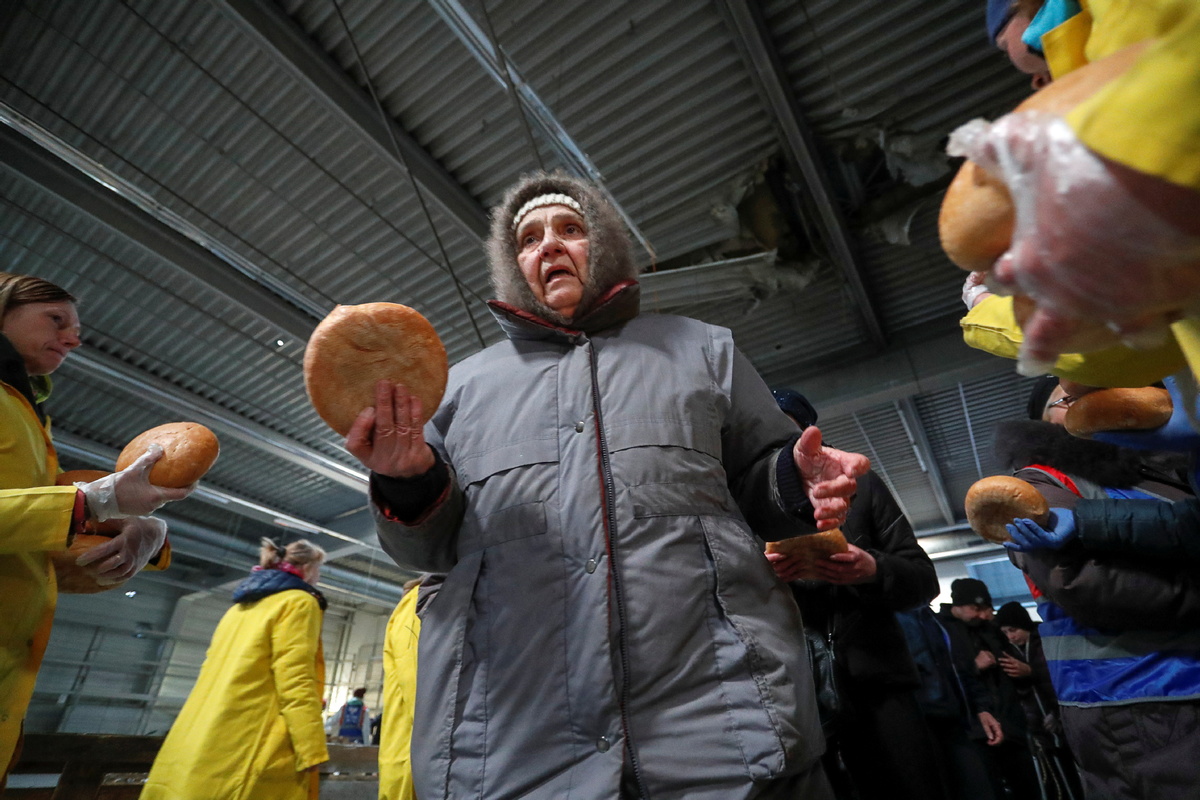EU plans new round of sanctions on Russia


The European Union proposed its fifth round of sanctions on Russia on Tuesday, while member states expelled more Russian diplomats over what the EU called "heinous crimes" in Ukraine allegedly committed by Russian troops.
European Commission President Ursula von der Leyen described on Tuesday photos of dead civilians from Bucha and other areas in Ukraine as "gruesome".
"The perpetrators of these heinous crimes must not go unpunished," she said, adding that the EU has set up a joint investigation team with Ukraine to "collect evidence and investigate war crimes against humanity in Ukraine".
Any allegation should be based on facts and all parties should exercise restraint and avoid groundless accusations before a conclusion is made, Chinese Foreign Ministry spokesman Zhao Lijian told a media briefing on Wednesday with regard to the reports and images of civilian deaths in Bucha.
The truth and origin of the incident must be clearly investigated and humanitarian issues should not be politicized, he added.
Zhao stressed that China supports any initiative and measure conducive to alleviating the humanitarian crisis in Ukraine and would make concerted efforts with the international community to prevent civilians from suffering any harm.
The EU sanctions proposed by Von der Leyen include a ban on imports of Russian coal worth 4 billion euros ($4.35 billion) a year.
They also include a full transaction ban on four key Russian banks, and a ban on Russian vessels and Russian-operated vessels from accessing EU ports, but with exceptions for essentials such as agricultural and food products, humanitarian aid and energy.
However, Sberbank and Gazprombank, Russia's biggest and third-largest financial institutions, will be exempted because they handle mostly energy-related payments.
The new package also includes a ban on Russian and Belarusian road transport operators and a targeted export ban worth 10 billion euros in areas such as quantum computers, advanced semiconductors, sensitive machinery and transportation equipment, as well as import bans on Russian goods-including timber, cement, seafood and liquor-and a general EU ban on Russian companies' participation in public procurement in EU member states.
While Von der Leyen said that the EU is working on additional sanctions, including oil imports, oil and gas are off the table in these latest sanctions.
The EU relies on Russia for more than 40 percent of its natural gas imports, 25 percent of its oil imports and 45 percent of its coal imports.
Countries such as Germany, Austria and the Netherlands, which are highly dependent on Russian energy, have opposed sanctions on Russian energy amid fears of causing an economic recession, mass unemployment and poverty at home.
"The fifth wave of sanctions does not seem to provide any breakthrough. Barring Russian coal is not going to change Putin's behavior, if the past four packages of sanctions had failed to do so," said Lai Suetyi, an associate professor at the Center for European Studies of Guangdong University of Foreign Studies in Guangzhou.
"Gas is the real bomb, but such a bomb hurts both Russia and the EU itself."
Coal accounts for a small share of the roughly 99 billion euros that the EU spent on Russian mineral fuels in 2021.
Lai noted that sanctions are not the only tool now, as the US and its allies are trying to use the Bucha killings to force more countries to join their front against Russia.
Ambassadors from 27 EU member states were expected to meet on Wednesday to discuss the new package of sanctions, which would require their unanimous agreement.
On Tuesday, EU foreign policy chief Josep Borrell said he had decided to designate a number of officials from Russia's mission to the EU as "persona non grata" for "engaging in activities contrary to their diplomatic status".
On Tuesday, Italy, Denmark, Sweden, Latvia, Estonia, Spain and Portugal announced they would expel Russian diplomats, following similar moves on Monday by France and Germany. In total, more than 200 Russian diplomats and diplomatic staff members are to be expelled.
During a visit to Berlin on Tuesday, Italian Foreign Minister Luigi Di Maio said that Italy had expelled 30 Russian diplomats for "national security reasons".
Russian Foreign Ministry spokeswoman Maria Zakharova told TASS news agency that there would be an appropriate response from Moscow to the expulsions.
Zhao Jia contributed to this story.

































